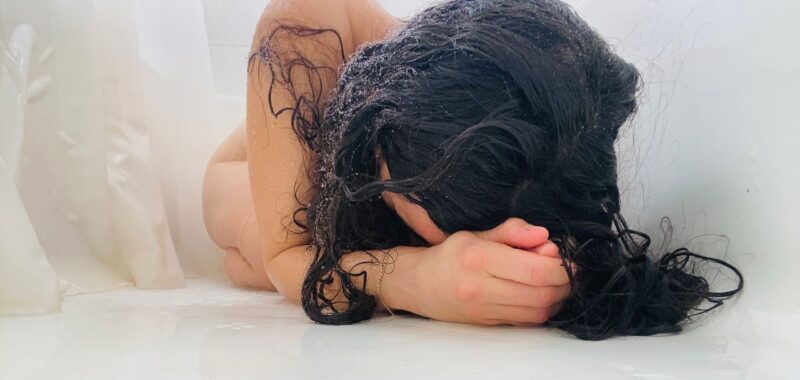While many people may feel a sense of relief, after living with endometriosis for over a decade, Yaël says, âIt felt like a part of me died on the table in the OR.
âI was overcome with grief. Itâs like, for 10 to 12 years, youâre told that youâre not seeing the world in blue. Youâre crazy. You need to take this medicine. You start questioning yourself. Am I crazy? And then one day, someone says, âActually, we figured out that your eyes are different and you are seeing the world in blue.â
âThereâs something so insane about something being tangible and being invisible. That is the fucked up thing that no one can see endometriosis, and people are invalidated and gaslit all of the time.â
According to an Alliance for Endometriosis survey, 90 percent of people with endometriosis say they are âdisbelieved, dismissed, or ignored by others at least monthly.â The survey also found that many people with endometriosis symptoms are told that their struggles are a “normal part of being a woman” by family, friends, or employers as well as health care professionals.
âEndometriosis steals your life,â Yael says. âAnd it has stolen mine.â
Yaël Krinsky crying, in pain, over her symptoms.
Sex and Endometriosis: Breaking the Taboo
Then thereâs the part that people donât often talk about openlyânot with their friends, family, or even intimate partners. When you have endometriosis, it can be incredibly painful to insert a tampon into your body, let alone engage in sexual activity.
Glamourâs commerce producer Leilani McQuay was diagnosed with endometriosis at 19, but her symptoms began in high school. âI remember missing school because of my period,â she says. âI would get in trouble and be told that Iâm over exaggerating, or they thought I was doing it to myself and making myself throw up.â
âWith one of my boyfriends,â she continues, âI threw up on him while we were having sex, which is so painfully embarrassing to even talk about. But I didnât want to tell him how bad it was hurting.â
Experiences like this, as well as societal pressures that prevent women from having honest conversations with men about sex and their pleasure, led to Leilani feeling like, âAm I just being weak? Is this how sex is supposed to be?â
Yaël also recalls having similar challenges when engaging in sexual intercourse. âI have to go to therapy because sex has been painful ever since I became sexually active,â she says. âCrying, screaming in pain, never feeling safe or comfortable.â
The majority of the women that I interviewed for this article stated that they have had intense and painful experiences during sex with partners. Studies indicate that more than half of people with endometriosis experience dyspareuniaâthat is, vaginal pain during sex. A study published in 2020 in the journal Sexual Medicine recognizes that dyspareunia is a neglected symptom of endometriosis, which is attributed to âembarrassment and normalization by clinicians and patients.â
In Leilaniâs case, on top of sex being extremely painful, she was also told by medical professionals that getting pregnant might be extremely difficult. âA doctor told me that I would be infertile because I have endometriosis,” she says. âI remember, thinking, âOkay, so Iâm just not going to have kids.’ When you hold shame for that long, and you think, âIâm not good enough as a woman, or Iâm not able to give my partner this,â it starts to cause a lot of emotions within yourself.â


.jpg)